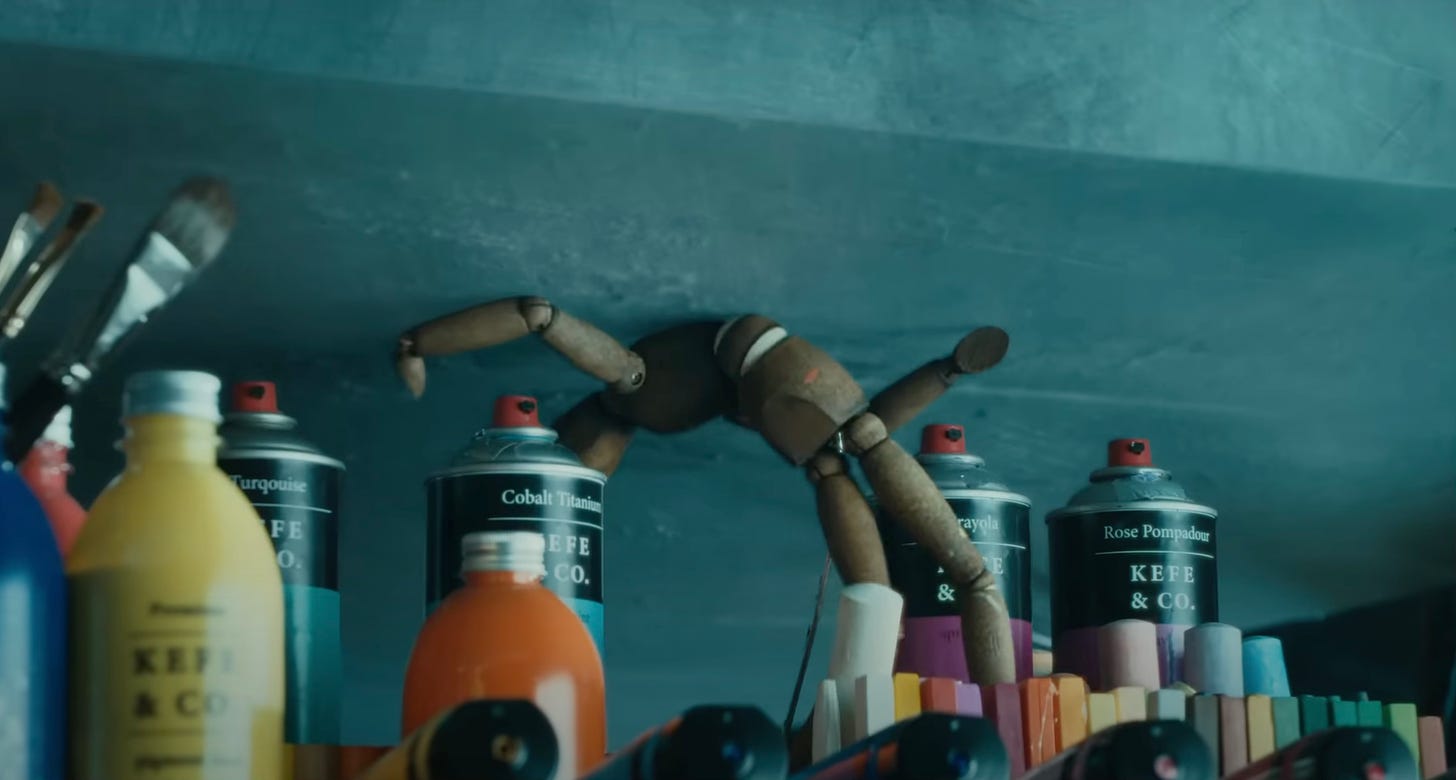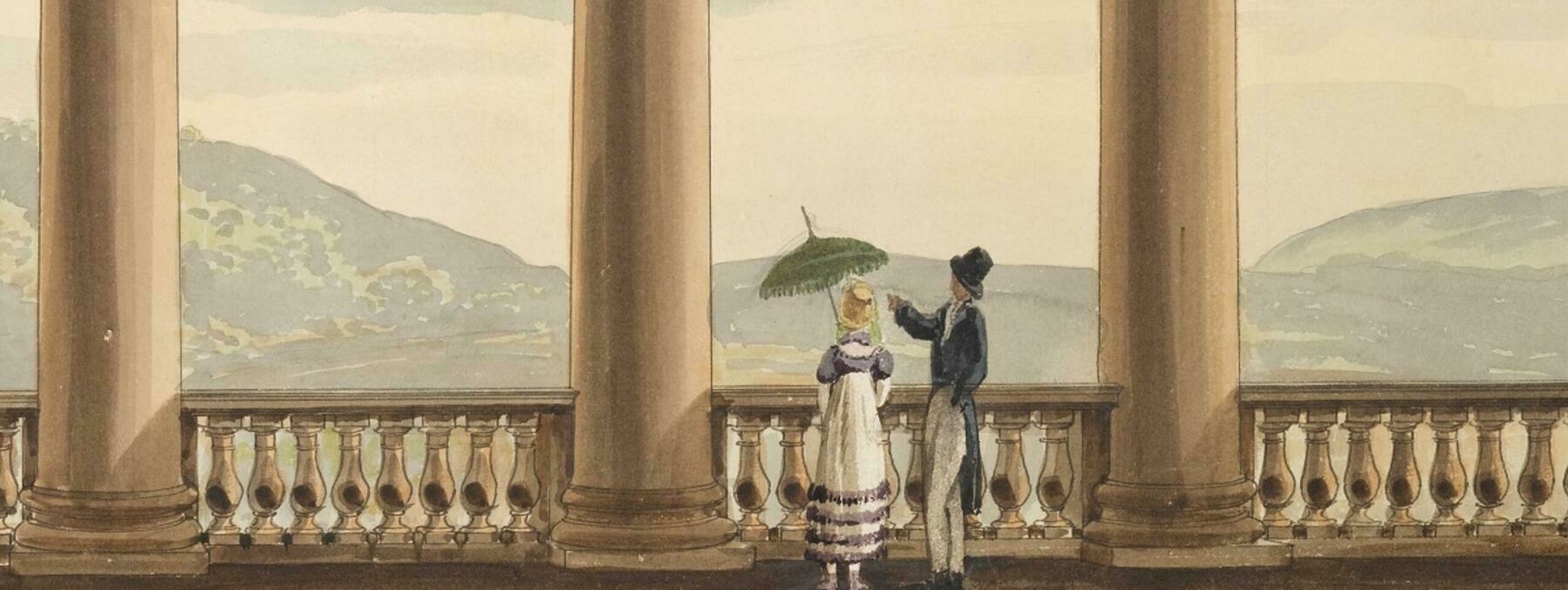Peer review in academic publishing can be frustrating, especially when frivolous scholars take the task of reviewing a manuscript as an opportunity to nurse grudges, grind axes, or police boundaries. But … I got a peer review of my Paradise Lost manuscript that was strongly critical of my treatment of one major point, and you know what? The reviewer was absolutely correct. Today I am revising in light of that criticism and the book will in the end be much better for it.
crushed again

Two of the best things I’ve read in response to the horrific “Crush” commercial Apple recently put out and half-heartedly apologized for: Mark Hurst and (especially) Mike Sacasas. I have to say that I’m finding it difficult to get over this: the ad has, I feel, given me a peek into the company’s soul, and what I see is a company that despises and mocks many of the things I most love. It’s scarcely more subtle than Mark Zuckerberg shouting “DOMINATION” to conclude Facebook meetings.
Honestly, I just want to stop using Apple products altogether. But if I did, (a) that would complicate the lives of family and friends who rely on Apple; (b) since I never have managed to get on the Linux train, my practical alternatives would involve relying on companies (Google, Microsoft) that are ethically no better than Apple; and (c) I would be unable to support the work of independent Apple developers (Bare Bones, Panic, Omni, Rogue Amoeba, etc.) whose software has been enormously beneficial to me over the years.
As I’ve thought about it, I’ve realized that that third consideration is a big one for me. David Smith (known to many as Underscore) is a longtime iOS developer who wrote recently about traveling to Cupertino for the upcoming WWDC — something he’s been doing for sixteen years. When he started attending the conference, he was excited about Apple, but now … not so much:
It isn’t necessarily that Apple itself is the root of this community, but moreover (especially in those early days) they provided a focal point for like-minded developers and designers to coalesce around, which became this community. Apple aspires toward many of this community’s values, but as they have expanded their reach and scope, they feel more like the multi-trillion dollar company they in fact are. There are still countless folks within Apple who are absolutely my people, but over time, I’ve noticed that there is a growing separation between the corporation and the community.
I’ve heard a version of this sentiment from a number of Apple developers, bloggers, and power users: They used to love the things Apple made, they used to love what they could see of the company culture, but now they just enjoy the community of people who work on the same things they do. Apple has become almost incidental to that community — and indeed, it often seems that one of the strongest forces holding that community is a shared frustration with Apple’s indifference or even hostility to its developers, its increasingly problematic software, its bizarre neglect of some of its central products. For instance, no one has been a bigger booster, or more creative user, of the iPad than Federico Viticci, but just look at how frustrated he has become with iPadOS.
Does Apple really want to create a community of developers and users bound to one another largely by anger at them? Probably not. But do they care to address anyone’s concerns? Certainly not. They think they’re invulnerable. Time will tell whether they’re right about that. But for the time being I will continue to use my Apple devices, in large part because I so admire the ongoing work of those developers whom Apple seems determined to discourage.
This photograph faithfully represents the moment when I haven’t had my coffee yet but Angus is already running laps around the house.

accountability
So here’s yet another story on how students today can’t or won’t read:
Theresa MacPhail is a pragmatist. In her 15 years of teaching, as the number of students who complete their reading assignments has steadily declined, she has adapted. She began assigning fewer readings, then fewer still. Less is more, she reasoned. She would focus on the readings that mattered most and were interesting to them.
For a while, that seemed to work. But then things started to take a turn for the worse. Most students still weren’t doing the reading. And when they were, more and more struggled to understand it. Some simply gave up.
I’ve already written on this topic, here. But this gives me a chance to add something I thought I had written about already … but maybe not? If I have, my apologies.
(N.B. That Chronicle article also discusses pedagogical problems faced by professors in the sciences, but I don’t know anything about what they face, so my comments here are only about my own neck of the woods, the humanities.)
What I would like to ask Theresa MacPhail is: Do you do anything to ensure that your students do the assigned reading? Or do you just give them the assignments and hope for the best?
Here’s what I do, and have done for my entire teaching career: I give pop reading quizzes. I tell my students why I give such quizzes: I do it, I say, because y’all are Self-Deceived Rational Utility Maximizers.
Students have many demands on their time, and they would also like to spend at least some of that time enjoying themselves, so when they look at what they’re supposed to do in any given week, they triage: What has to be done first? That is, what will I pay a price for not doing? Whatever would cost them the most to skip is what they do first, and then they work their way down the line. If you have assigned your students some reading but they pay no price for neglecting that reading, then students will neglect that reading. It’s as simple as that. When I was in college I thought in precisely the same way. I rationally maximized my utility, according to what was utile by my lights. (That is to say, I never underestimated the utility of smoking pot and going bowling, or smoking pot and listening to music, or … just smoking pot.)
Now, the students rarely tell themselves that they won’t do the reading at all. They declare that they’ll get caught up next week, when things are a little less harried. But here’s where the “self-deceived” part of Self-Deceived Rational Utility Maximizer comes in: next week will of course not be less harried. And if there’s still no cost to neglecting the reading … well, we all know how things will work out, don’t we?
This is why I give reading quizzes: to move my assignments up in the queue, to force the practitioner of triage to reckon with me. And there’s another reason: We go over each quiz in class — I make them grade their own quizzes — and in the process I discover what they noticed and what they missed. That’s useful information for me, and not just when I’m making up future quizzes: I’m able in our discussion to zero in on those overlooked passages. “Why did I ask about this? Why is this passage important?” I also encourage them to tell me when they think a question is too picky — sometimes I even agree that it is, though whether I do or not it’s helpful to explain why I asked it.
This whole process is an education in attentive reading, or that’s what I try to turn it into anyway. And one of the major reasons I think it works is that my students’ quiz grades tend to rise over the course of the term. They get better at noticing; they get better at recognizing what really matters in the texts we read. Not all of them, of course; but most of them.
(Yes, of course I know that some of them are reading SparkNotes and Wikipedia summaries and the like; but I try to take that into account when making up the quizzes, and even if they can get a few questions right based on reading such summaries, well, that’s better than not reading at all. At the very least they get a good deal more out of the classroom discussion than they would have if they had come in knowing nothing.)
You can assign reading to students; but if you don’t develop strategies for holding them accountable, then it doesn’t really matter what you assign. They’re Self-Deceived Rational Utility Maximizers after all, and if there’s one thing you can never change about them it’s that.
So when people say “My students can’t read any more,” I want to ask what they’re doing to hold them accountable — and what they’re doing to help them become more intelligently attentive readers. That Chronicle of Higher Education article didn’t focus on those questions, but they’re essential. (We do hear something that Adam Kotsko, whose essay in Slate kicked off this season of conversation, does to make sure his students are reading and assess how they read. It’s very different from what I do, but it’s interesting.)
If teachers do have strategies for making their students accountable and are consciously working to teach better reading skills and the students are still not doing the necessary work, then we definitely have a big social problem. And we very well might. But some vital information is missing from these exercises in lamentation.
Looks like I convinced at least one person to try micro.blog: Brad East – AKA @bradeast.org. He has good reasons for joining.
What an amazing post by Adam Roberts, on Coleridge’s “Rime of the Ancient Mariner” as illuminated by a dozen other things, from Homer to C. S. Lewis to a Superman comic.

From John Ruskin's Fors Clavigera, Letter 7:
You are to do good work, whether you live or die. It may be you will have to die; — well, men have died for their country often, yet doing her no good; be ready to die for her in doing her assured good: her, and all other countries with her. Mind your own business with your absolute heart and soul; but see that it is a good business first. That it is corn and sweet peas you are producing, — not gunpowder and arsenic. And be sure of this, literally: — you must simply rather die than make any destroying mechanism or compound. You are to be literally employed in cultivating the ground, or making useful things, and carrying them where they are wanted. Stand in the streets, and say to all who pass by: Have you any vineyard we can work in, — not Naboth's? In your powder and petroleum manufactory, we work no more.
last words
From Evelyn Waugh’s biography of Ronald Knox:
For three days he lay in a coma, but once Lady Eldon saw a stir of consciousness and asked whether he would like her to read to him from his own New Testament. He answered very faintly, but distinctly: ‘No’; and then after a long pause in which he seemed to have lapsed again into unconsciousness, there came from the death-bed, just audibly, in the idiom of his youth: ‘Awfully jolly of you to suggest it, though.’
They were his last words.
My favorite story about Knox, about whom there are many many stories, is that when he had a private audience with Pope Pius XII the chief thing that the Holy Father wanted to talk about was the Loch Ness monster. (I guess that’s more of a Pope story than a Knox story, but anyway.)
Yousuf Karsh’s portraits deserve their great fame, and one of my favorites is this one, of Helen Taussig, who basically invented pediatric cardiology. Taussig was a remarkable person. After becoming fully deaf in adulthood, she developed ingenious ways to communicate with her patients; and at the end of her long life she was studying congenital heart defects in birds.

Phil Foden shouldn’t have gotten the Player of the Year trophy because he’s neither the best nor the most important player on his own team. Luis Miguel Echegaray is right: the Premier League player of the year is Rodri. I despise Man City, but Rodri is titanic. ⚽️
Every year I re-read at least one of John Ruskin’s books, and I’ve just gone through The Stones of Venice again. No other writer lights up my brain quite the way Ruskin does. See posts tagged ruskin on my blog. I often wish I could go back in time and tell my 22-year-old self, “Let Ruskin be your guide.” I would’ve had a very different and more useful career.
Ruskin on Color

The perception of colour is a gift just as definitely granted to one person, and denied to another, as an ear for music; and the very first requisite for true judgment of Saint Mark’s, is the perfection of that colour-faculty which few people ever set themselves seriously to find out whether they possess or not. […]
The fact is, that, of all God’s gifts to the sight of man, colour is the holiest, the most divine, the most solemn. We speak rashly of gay color and sad color, for color cannot at once be good and gay. All good color is in some degree pensive, the loveliest is melancholy, and the purest and most thoughtful minds are those which love colour the most.
– John Ruskin, The Stones of Venice
Ruskin thought about color all the time, and wrote about it often. See for instance this post. He seems to have thought color itself a mystical and revelatory thing, something he was surprised and delighted that God took the trouble to create.

Musa al-Gharbi: “Universities in general, and elite schools in particular, exist largely to launder wealth into perceptions of ‘merit.’ They help the children of wealthy and well-connected families reproduce their social position and feel like they ‘earned’ it.” That may not be the whole story, but … he’s not wrong.
I believe every man in a Christian kingdom ought to be equally well educated. But I would have it education to purpose; stern, practical, irresistible, in moral habits, in bodily strength and beauty, in all faculties of mind capable of being developed under the circumstances of the individual, and especially in the technical knowledge of his own business; but yet, infinitely various in its effort, directed to make one youth humble, and another confident; to tranquillize this mind, to put some spark of ambition into that; now to urge, and now to restrain: and in the doing of all this, considering knowledge as one only out of myriads of means in his hands, or myriads of gifts at its disposal; and giving it or withholding it as a good husbandman waters his garden, giving the full shower only to the thirsty plants, and at times when they are thirsty; whereas at present we pour it upon the heads of our youth as the snow falls on the Alps, on one and another alike, till they can bear no more, and then take honour to ourselves because here and there a river descends from their crests into the valleys, not observing that we have made the loaded hills themselves barren for ever.
— John Ruskin, The Stones of Venice
Ian Paul: “When I became an Anglican (from a background of a different church tradition), I was at first quite puzzled by the choice of Scripture passages that Anglican (that is, Church of England) services kept coming back to.” An excellent account of certain pervasive and distinctive features of Prayer Book worship.


